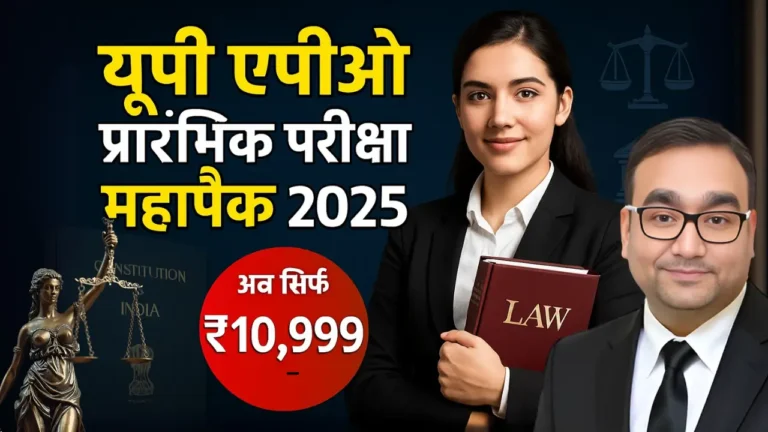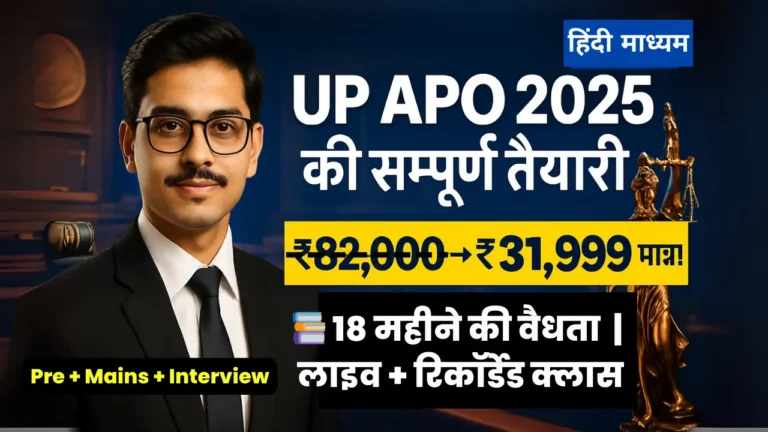I R Coelho vs State of Tamil Nadu (2007) 2 SCC 1 is a landmark case on the basic structure doctrine and Ninth Schedule immunity. Doon Law Mentor provides a detailed legal analysis for lawyers and law students, exploring its impact on judicial review and the Indian Constitution.
Table of Contents
Introduction
Can Parliament amend the Indian Constitution to shield laws from judicial scrutiny, or are there inviolable limits to its power? The landmark case of I.R. Coelho v. State of Tamil Nadu (2007) 2 SCC 1 addresses this question, reinforcing the basic structure doctrine and the judiciary’s role in protecting constitutional integrity. Centered on the Ninth Schedule’s immunity from judicial review, I.R. Coelho clarifies the balance between legislative authority and constitutional supremacy. For lawyers and law students, I.R. Coelho is a pivotal study in constitutional law, illuminating Articles 31-B, 368, and the judiciary’s guardianship of fundamental rights. This comprehensive blog, crafted by Doon Law Mentor, provides an in-depth legal analysis of I.R. Coelho as of July 5, 2025, exploring its facts, legal issues, judicial reasoning, constitutional insights, case studies, and implications for legal practice, offering an authoritative resource for navigating India’s constitutional framework.
Background of I.R. Coelho v. State of Tamil Nadu
Historical Context
The Ninth Schedule of the Indian Constitution, introduced by the First Amendment in 1951, was designed to protect land reform laws from judicial review by placing them beyond the scope of Fundamental Rights challenges under Article 13. Article 31-B grants immunity to laws included in the Ninth Schedule, shielding them from being declared void for violating Fundamental Rights. However, this immunity raised concerns about unchecked legislative power, particularly after the 42nd Amendment (1976), which expanded the Ninth Schedule’s scope during the Emergency.
Factual Background
The I.R. Coelho case originated from a challenge to the Tamil Nadu Backward Classes, Scheduled Castes and Scheduled Tribes (Reservation of Seats in Educational Institutions and of Appointments or Posts in the Services under the State) Act, 1994, which was placed in the Ninth Schedule. The case also addressed the broader issue of laws added to the Ninth Schedule post-Kesavananda Bharati v. State of Kerala (1973), which established the basic structure doctrine. The key events leading to I.R. Coelho include:
- Gudalur Janmam Abolition Act: The primary law challenged, related to land reforms in Tamil Nadu, was placed in the Ninth Schedule.
- Post-1973 Additions: After Kesavananda Bharati, several laws were added to the Ninth Schedule, prompting questions about their immunity from judicial review.
- Supreme Court Reference: A five-judge bench referred the matter to a nine-judge Constitution Bench to resolve the constitutional validity of Ninth Schedule laws post-1973.
Constitutional Provisions Involved
- Article 13: Declares laws inconsistent with Fundamental Rights void, unless protected by provisions like Article 31-B.
- Article 31-B: Grants immunity to Ninth Schedule laws from Fundamental Rights challenges.
- Article 368: Empowers Parliament to amend the Constitution, subject to the basic structure doctrine.
- Basic Structure Doctrine: Limits Parliament’s amendment power to protect core constitutional features, such as judicial review and fundamental rights.
Legal Issues in I.R. Coelho
The I.R. Coelho case raised critical legal questions:
- Judicial Review of Ninth Schedule Laws: Can laws placed in the Ninth Schedule post-Kesavananda Bharati (April 24, 1973) be immune from judicial review if they violate the basic structure of the Constitution?
- Scope of Article 31-B: Does Article 31-B provide absolute immunity to Ninth Schedule laws, or is it subject to the basic structure doctrine?
- Fundamental Rights and Basic Structure: Are fundamental rights, particularly Articles 14 (equality), 19 (freedoms), and 21 (life and liberty), part of the basic structure, making their violation by Ninth Schedule laws unconstitutional?
- Parliament’s Amendment Power: Can Parliament use Article 368 to amend the Ninth Schedule in a manner that undermines the Constitution’s basic structure?
Judicial Reasoning in I.R. Coelho v. State of Tamil Nadu (2007) 2 SCC 1
Supreme Court’s Verdict
In I.R. Coelho, a nine-judge Constitution Bench, led by Chief Justice Y.K. Sabharwal, delivered a unanimous decision, reinforcing the basic structure doctrine and subjecting Ninth Schedule laws to judicial review. Key aspects of the reasoning include:
- Basic Structure Doctrine: The Court reaffirmed Kesavananda Bharati (1973), holding that the basic structure doctrine limits Parliament’s amendment power under Article 368. Fundamental rights, including Articles 14, 19, and 21, form part of the basic structure.
- Judicial Review of Ninth Schedule Laws: Laws placed in the Ninth Schedule after April 24, 1973 (the date of Kesavananda Bharati) are subject to judicial review if they violate the basic structure. Article 31-B’s immunity is not absolute.
- Article 31-B’s Scope: While Article 31-B protects Ninth Schedule laws from Fundamental Rights challenges, it cannot shield laws that abrogate the basic structure, such as equality, rule of law, or judicial review.
- Fundamental Rights as Basic Structure: The Court held that fundamental rights, particularly the “golden triangle” of Articles 14, 19, and 21, are integral to the basic structure, ensuring their protection from legislative overreach.
- Test for Validity: The Court established that Ninth Schedule laws must be tested for their impact on the basic structure, not merely for violating Fundamental Rights. Laws causing “direct and immediate” damage to the basic structure are unconstitutional.
Key Observations
- Judicial Review as Core: The Court emphasized judicial review as a basic structure feature, ensuring the judiciary’s role in checking legislative and executive actions.
- Balance of Power: I.R. Coelho reinforced the balance between parliamentary sovereignty and constitutional supremacy, preventing Parliament from undermining core constitutional principles.
- Post-1973 Context: The Court distinguished pre- and post-1973 Ninth Schedule laws, noting that post-1973 additions face stricter scrutiny due to the basic structure doctrine.
Read More: Haryana v. Punjab 2002: SYL Canal Water Dispute
Constitutional Insights from I.R. Coelho
Basic Structure Doctrine
I.R. Coelho is a landmark reaffirmation of the basic structure doctrine, established in Kesavananda Bharati. It clarifies that no constitutional amendment, including additions to the Ninth Schedule, can violate core features like judicial review, equality, or fundamental rights.
Judicial Review
The case underscores the judiciary’s role as the guardian of the Constitution, ensuring that legislative actions, even those shielded by Article 31-B, remain subject to scrutiny for basic structure violations. This strengthens the separation of powers.
Fundamental Rights
I.R. Coelho elevates Articles 14, 19, and 21 to the core of the basic structure, ensuring their protection against legislative overreach. This has significant implications for laws affecting equality, freedoms, and personal liberty.
Ninth Schedule and Article 31-B
The case limits the scope of Article 31-B, originally intended to protect land reforms, by subjecting post-1973 Ninth Schedule laws to judicial review. This prevents Parliament from using the Ninth Schedule as a blanket shield for unconstitutional laws.
Constitutional Supremacy
I.R. Coelho reinforces the supremacy of the Constitution over parliamentary power, ensuring that amendments under Article 368 align with the Constitution’s foundational principles.
Read More: Can the Words Socialist and Secular Ever Be Removed from the Indian Constitution
Case Study 1: Gudalur Janmam Abolition Act
Context
The Tamil Nadu Gudalur Janmam Estates (Abolition and Conversion into Ryotwari) Act, 1969, was challenged in I.R. Coelho for its inclusion in the Ninth Schedule. The Act aimed to redistribute land but was alleged to violate fundamental rights under Articles 14 and 19.
Legal Implications
- Judicial Review: The Supreme Court held that the Act, placed in the Ninth Schedule post-1973, was subject to scrutiny for violating the basic structure, particularly equality (Article 14).
- Outcome: The Court did not strike down the Act outright but referred it to a smaller bench to assess its impact on the basic structure, demonstrating the judiciary’s cautious approach.
- Basic Structure Test: The case established that Ninth Schedule laws must be tested for their “direct and immediate” effect on constitutional principles.
Impact
This case study illustrates how I.R. Coelho applies the basic structure doctrine to land reform laws, balancing social justice with constitutional protections.
Case Study 2: Tamil Nadu Reservation Act, 1994
Context
The Tamil Nadu Backward Classes, Scheduled Castes and Scheduled Tribes Act, 1994, providing 69% reservation in education and employment, was placed in the Ninth Schedule to shield it from judicial review. I.R. Coelho examined its validity.
Legal Implications
- Fundamental Rights Violation: The Act was challenged for potentially violating Article 14 (equality) by exceeding the 50% reservation cap set in Indra Sawhney v. Union of India (1992).
- Judicial Scrutiny: I.R. Coelho ruled that post-1973 Ninth Schedule laws, including this Act, could be reviewed for basic structure violations, particularly equality and non-discrimination.
- Subsequent Developments: The Act’s validity was later upheld in Ashoka Kumar Thakur v. Union of India (2008), but I.R. Coelho ensured ongoing judicial oversight.
Impact
This case study highlights I.R. Coelho’s role in subjecting reservation laws to basic structure scrutiny, ensuring a balance between affirmative action and constitutional equality.
Case Study 3: Impact on Post-2007 Ninth Schedule Litigation
Context
Following I.R. Coelho, several Ninth Schedule laws faced challenges for violating the basic structure. For example, challenges to land acquisition laws in Maharashtra and Karnataka were influenced by I.R. Coelho’s precedent.
Legal Implications
- Increased Judicial Oversight: I.R. Coelho empowered courts to review Ninth Schedule laws for basic structure violations, leading to greater scrutiny of land reform and reservation laws.
- Precedent for Future Cases: The ruling influenced cases like GlaxoSmithKline Pharmaceuticals v. Union of India (2014), where Ninth Schedule laws were tested for compliance with Articles 14 and 21.
- Legislative Caution: Parliament became more cautious in adding laws to the Ninth Schedule, aware of judicial review.
Impact
This case study demonstrates I.R. Coelho’s lasting impact on constitutional litigation, ensuring that Ninth Schedule laws remain accountable to the Constitution’s core principles.
Comparative Analysis: Other Basic Structure Cases
Kesavananda Bharati v. State of Kerala (1973)
- Context: Established the basic structure doctrine, limiting Parliament’s amendment power under Article 368.
- Comparison: I.R. Coelho builds on Kesavananda Bharati by applying the doctrine to Ninth Schedule laws, reinforcing judicial review.
- Relevance: Both cases protect the Constitution’s core features, ensuring legislative accountability.
Minerva Mills v. Union of India (1980)
- Context: Struck down parts of the 42nd Amendment for prioritizing Directive Principles over Fundamental Rights.
- Comparison: Like I.R. Coelho, Minerva Mills emphasized the balance between Fundamental Rights and Directive Principles, protecting judicial review.
- Relevance: Reinforces the judiciary’s role in safeguarding constitutional harmony.
Waman Rao v. Union of India (1981)
- Context: Upheld the validity of pre-1973 Ninth Schedule laws but left post-1973 laws open to scrutiny.
- Comparison: I.R. Coelho clarified Waman Rao by explicitly subjecting post-1973 Ninth Schedule laws to basic structure review.
- Relevance: Completes the judicial framework for Ninth Schedule scrutiny.
United States: Marbury v. Madison (1803)
- Framework: Established judicial review in the U.S., similar to India’s basic structure doctrine.
- Comparison: I.R. Coelho parallels Marbury v. Madison by affirming the judiciary’s power to check legislative overreach.
- Relevance: Highlights the universal importance of judicial review in constitutional democracies.
Implications for Law Students and Lawyers
I.R. Coelho offers significant learning opportunities for legal professionals:
- Constitutional Law: Understanding the basic structure doctrine and its application to Ninth Schedule laws is essential for constitutional law practice.
- Judicial Review: Lawyers must master the judiciary’s role in reviewing constitutional amendments and Ninth Schedule laws for basic structure violations.
- Fundamental Rights: I.R. Coelho emphasizes the protection of Articles 14, 19, and 21, critical for litigation involving equality and liberty.
- Public Interest Litigation (PIL): PILs challenging Ninth Schedule laws may arise, requiring expertise in constitutional law and judicial precedents.
- Policy Advocacy: Lawyers may advise governments on drafting laws that comply with the basic structure doctrine, particularly for land reforms or reservations.
- Comparative Constitutional Law: Understanding I.R. Coelho in the context of global constitutionalism enhances expertise in judicial review and constitutional supremacy.
Table: Key Constitutional Provisions in I.R. Coelho
| Provision | Description | Role in I.R. Coelho |
|---|---|---|
| Article 13 | Declares laws inconsistent with Fundamental Rights void | Limited by Article 31-B but subject to basic structure review |
| Article 31-B | Grants immunity to Ninth Schedule laws | Post-1973 laws subject to judicial review for basic structure violations |
| Article 368 | Empowers Parliament to amend the Constitution | Limited by basic structure doctrine |
| Article 14 | Equality before the law | Part of basic structure, protected in I.R. Coelho |
| Article 21 | Right to life and liberty | Core to basic structure, safeguarded from Ninth Schedule overreach |
This table, created by Doon Law Mentor, summarizes the constitutional provisions central to I.R. Coelho.
Critical Evaluation
I.R. Coelho v. State of Tamil Nadu is a landmark case that strengthens the basic structure doctrine, ensuring that Ninth Schedule laws cannot undermine the Constitution’s core principles. By subjecting post-1973 Ninth Schedule laws to judicial review, I.R. Coelho balances parliamentary authority with constitutional supremacy, protecting fundamental rights like equality and liberty. However, the case leaves some ambiguity about pre-1973 laws and requires case-by-case scrutiny of post-1973 laws, posing challenges for judicial consistency. For lawyers and law students, I.R. Coelho underscores the judiciary’s critical role in safeguarding India’s constitutional framework, offering a robust precedent for challenging legislative overreach.
Conclusion: Insights and Relevance of I.R. Coelho
I.R. Coelho v. State of Tamil Nadu (2007) 2 SCC 1 is a pivotal case that reinforces the basic structure doctrine, ensuring that Ninth Schedule laws remain subject to judicial review for violating fundamental rights and constitutional principles. By affirming the judiciary’s role as the Constitution’s guardian, I.R. Coelho protects the balance between legislative power and constitutional supremacy. For lawyers and law students, the case provides critical insights into judicial review, fundamental rights, and the limits of Article 31-B. Join Doon Law Mentor at doonlawmentor.com to explore this landmark case and advance your constitutional law expertise.
FAQs
What is I.R. Coelho v. State of Tamil Nadu about?
I.R. Coelho (2007) examined the constitutionality of Ninth Schedule laws, ruling that post-1973 laws are subject to judicial review for basic structure violations.
Why is I.R. Coelho significant?
It reinforces the basic structure doctrine, protecting fundamental rights and judicial review from Ninth Schedule immunity.
How does I.R. Coelho impact judicial review?
It ensures that Ninth Schedule laws can be reviewed for violating core constitutional principles like equality and liberty.
What is the basic structure doctrine in I.R. Coelho?
The doctrine limits Parliament’s amendment power, protecting features like judicial review and fundamental rights.
How can lawyers use I.R. Coelho?
Lawyers can apply I.R. Coelho in cases challenging Ninth Schedule laws or defending fundamental rights.
#IRCoelho #IndianConstitution #BasicStructureDoctrine #DoonLawMentor






